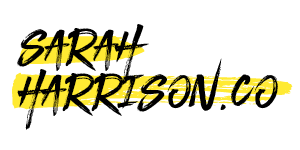Six Common Fears Entrepreneurs Have (& how rapid prototyping helps)
Like this post? Pin it on Pinterest!
In my time working with early stage founders, here’s a list I’ve gathered of some of the common fears when it comes time to prototype and test rapidly:
Fear of competition — this is the impulse to keep your startup in “stealth mode” for months. What we find is startups fail for many many reasons other than competition, and those reasons could have easily been found out by being open about what you’re building and testing it early and often.
Fear of what people will think — we all have an inner critic telling us before we launch something that people will hate it, reject your ideas, laugh at you, call you a fool, yadda yadda yadda. It keeps us in refinement mode, or worse, it keeps us from testing something at all. We’ve got to get comfortable with #1 above and put work into the world before we think it’s ready, so we can learn what we need to do to make it better.
Fear of being seen — many founders I’ve worked with are so passionate about what they’re doing, it becomes part of their identity. Then when it comes time to put it out into the world, any criticism of what they’ve built becomes a personal critique of them. This can keep them hiding, always working away at being busy instead of putting their ideas out there where the real work happens.
Fear of failure — this one’s obvious, we’re all afraid of putting our heart and soul into something and having it fail. But we can’t let that stop us from testing our ideas at all. Sometimes things fail. The sooner we learn what didn’t work, the sooner we can figure out how to fix it to build something that works.
Fear of being successful — right alongside fear of failure comes fear of being successful. Some founders get so heads down, so used to the grind of working on their idea, that when the time finally comes where they can see they’re onto something that could really be something, the idea of how their life will change comes crashing into them. Press interviews, speaking at conferences, getting funded, moving into a big office, managing a team — it can be a huge change for some founders, and the shock of the idea can freeze people in their tracks. You’ll never feel ready for it, so don’t try to wait until a time when you do.
Fear of looking uncertain — especially as leaders of a team, founders feel they need to be on top of everything, calling the shots, knowing the next move, or they’ll lose respect and lose control of their team. I’ve spent a good amount of this article convincing you to embrace uncertainty — now’s the time to embrace vulnerability, too. Your team will appreciate when you admit that you don’t know what comes next, and that you’re all making a collaborative effort to figure it out together.
If you can’t ignore your fear entirely, learn to use it as a sign that it’s time to collect more data by showing what you’ve got so far to people in your target market.
When you have certainty and know what to do next, your gut feels calm, settled. Once your gut starts twisting up again from fear, you can use that as a guide that you’ve sailed back into uncertainty and need to run more tests.
When you’ve embraced uncertainty and learned to navigate the choppy seas by pivoting based on what you’ve learned from experiments, you start riding the waves smoothly, and you realize it was your desire for certainty that was causing most of the friction to begin with.
When you get comfortable with starting ugly and putting your work out there while it’s still being developed, you maximize your rate of learning and can make informed decisions faster.
And when you are able to show up, be vulnerable, and ignore your fear, or use it to help you know when it’s time to get more data, you will earn the respect of your team, you’ll be able to gain insights and work collaboratively, and the whole vessel will be smooth sailing as you make your way through those uncharted waters.
(Excerpted from 3 things rapid prototyping taught me about entrepreneurship)

